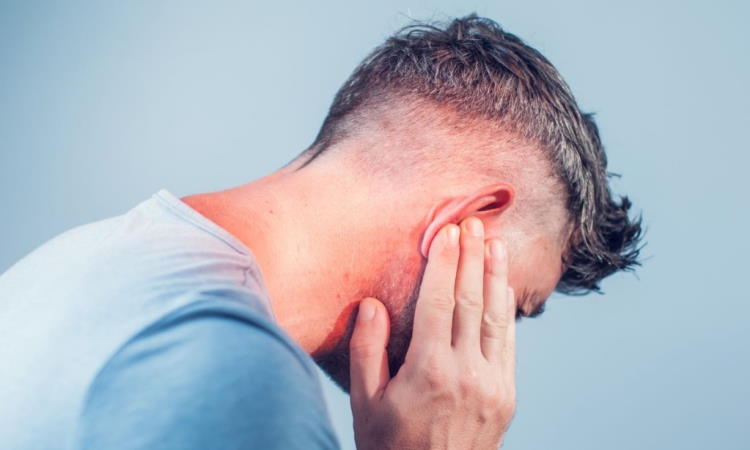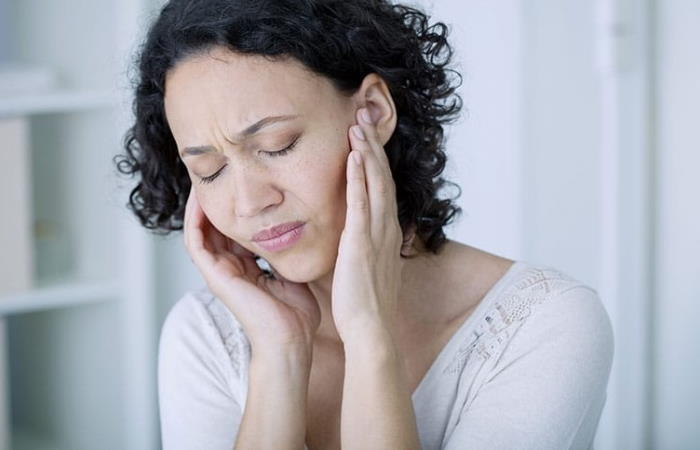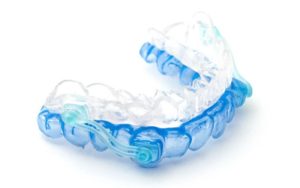Ear pain can be truly excruciating. Anyone who has experienced pain in their ear canal can attest to that. But did you know that not all ear pain is caused by infection? The temporomandibular joint (TMJ) disorder (also known as TMD) can also cause great discomfort in the area of the ear. Depending on the severity of the disorder, it can be a simple case of soreness to a debilitating kind of pain.
But what’s the relationship between TMJ disorder and the ear? More importantly, how do you find relief for TMJ symptom ear pain?
Understanding TMJ Symptom: Ear Pain
Doctors dub TMJ disorder as an “imposter” as the condition shares several symptoms with other health conditions, like infections. Part of the reason is the jaw joint’s close proximity to vital regions of the head and the diverse symptoms. The TMJ is the joint that connects your jawbone to your skull. Found on both sides of your jaw, it works like a sliding hinge that allows you to move your jaw side to side, and open your mouth to speak, smile, yawn, chew, and swallow.
As with other joints in the body, the TMJ can get injured from trauma and wear and tear. The main symptom of TMJ disorder is pain and soreness in the jaw area that can sometimes radiate all the way to the ear, neck, shoulders, and even cause headaches. It can also cause clicking and popping sounds when you open or close your mouth, jaw locking, soreness of the facial muscles, ringing in your ears, or even hearing loss. About 80% of people with TMJ disorders report earache.
Why your ear pain is not caused by an infection
Also, it is worth noting that ear infections are far less common among adults than in children. This is mostly due to children’s poorly developed immune systems and smaller ear passages. Children can experience earache due to infections or illnesses like cold or flu, as pain related to these conditions can spread to the middle ear. This is because bacteria and viruses often reproduce in the middle ear. Couple that with their immune system response, which creates a swelling and excess fluid in the region that leads to narrowing and clogging of the passage.
There are also three different types of TMJ disorder:
- Myofascial pain – This is the most common type of TMJ characterized by a deep aching pain in the muscles of the joint.
- Internal joint derangement – Trauma or dislocation of the jaw joint
- Degenerative disease – Arthritis is a form of a degenerative disorder that affects the joint
Different causes of TMJ
Experts are yet to pinpoint the exact cause of TMJ disorder. Some research suggests its link to female hormones, which would explain why more women experience the disorder compared to men. Some research links it to stress, as jaw clenching and teeth grinding, which are manifestations of psychological stress, can lead to pain in the jaw joint. Also, over time, a misaligned jaw and inflamed jaw joint can put too much stress on the jaw joint.
Basically, it can be caused by a variety of things, and each individual can experience pain in their jaw for different reasons. It can be an injury to the jaw, bruxism (jaw clenching and teeth grinding), arthritis, a misaligned bite, excessive chewing (gum, hard meat, ice, pen, etc.).
Often, the discomfort and pain are more apparent when you open your mouth to chew and swallow food, speak, and yawn.
Why TMJ Disorder Causes Ear Pain?
The close proximity of the temporomandibular joint to the auditory canal (about 0.5 cm) is the simplest reason why ear pain could be caused by TMJ disorder. When the jaw joints and its surrounding muscles become sore and inflamed, the nerve path that registers pain towards the brain is connected to the Eustachian tube. This results in pressure around the eardrum and the pain can radiate a few inches up, down, and side to side. The pain that affects a certain area of the body is called referred pain.
The location of the jaw joints, as well as the wide nerve path that connects to them, allows the pain to go all the way to the face, head, neck, and shoulders. Subsequently, it can also cause ringing sounds, better known as tinnitus.
Distinguishing TMJ Symptom Ear Pain from Infection
You know you are suffering from an ear infection if:
- You have a fever
- You experience localized warmth in the ear region
- You’re recovering from a recent illness
- You notice a discharge coming out of your ear (outer ear or through the Eustachian tubes)
If you have not been sick lately or you are not feeling sick now, there’s a high chance you are not experiencing an ear infection. Fever is the most basic symptom of infections. TMJ disorder will not cause fever, or discharge from your ears.
If you believe you have an infection, then you should know that viral infections tend to clear up on their own. However, if symptoms persist, then it is best to see your doctor. He may prescribe you medications. If symptoms continue despite taking the prescribed medication, then your doctor may consider TMJ disorder.
You know you are suffering from TMJ disorder if:
- You don’t have a fever
- Your doctor determines there’s no infection
- The ear pain doesn’t disappear on its own
- The pain doesn’t respond to antibiotics
- You can hear clicking and popping sounds in your jaw
- You have tooth wear
- You experience headaches, neck pain, and shoulder pain
- Your symptoms flare up after chewing intensely or yawning
Chipped, broken, or damaged teeth are tell-tale signs of TMJ. This is because damaged teeth are a sign of bruxism, or excessive jaw clenching and teeth grinding. This bad habit causes too much stress and pressure on the jaw joint, which results in inflammation, soreness, and pain. Chewing tough meat, ice cubes, pencils, and gum for a long time can also lead to pain in the TMJ.
Treatment options for ear pain caused by TMJ
Treatment for TMJ disorder depends on the cause and severity of the condition. For mild pain, doctors usually prescribe self-care and holistic remedies such as a hot and cold compress, rest, massages, stretches, and eating soft food.
For excessive pain, doctors can prescribe anti-inflammatory medication like muscle relaxants to provide quick relief for the tender muscles around the jaw. Dentists can also prescribe custom-fit mouthguards and oral appliances to provide cushion and protection for the teeth and the jaw and minimize the effects of bruxism, especially during sleep.
If you are experiencing ear pain, it is best to see your doctor for a proper diagnosis and course of treatment.


























